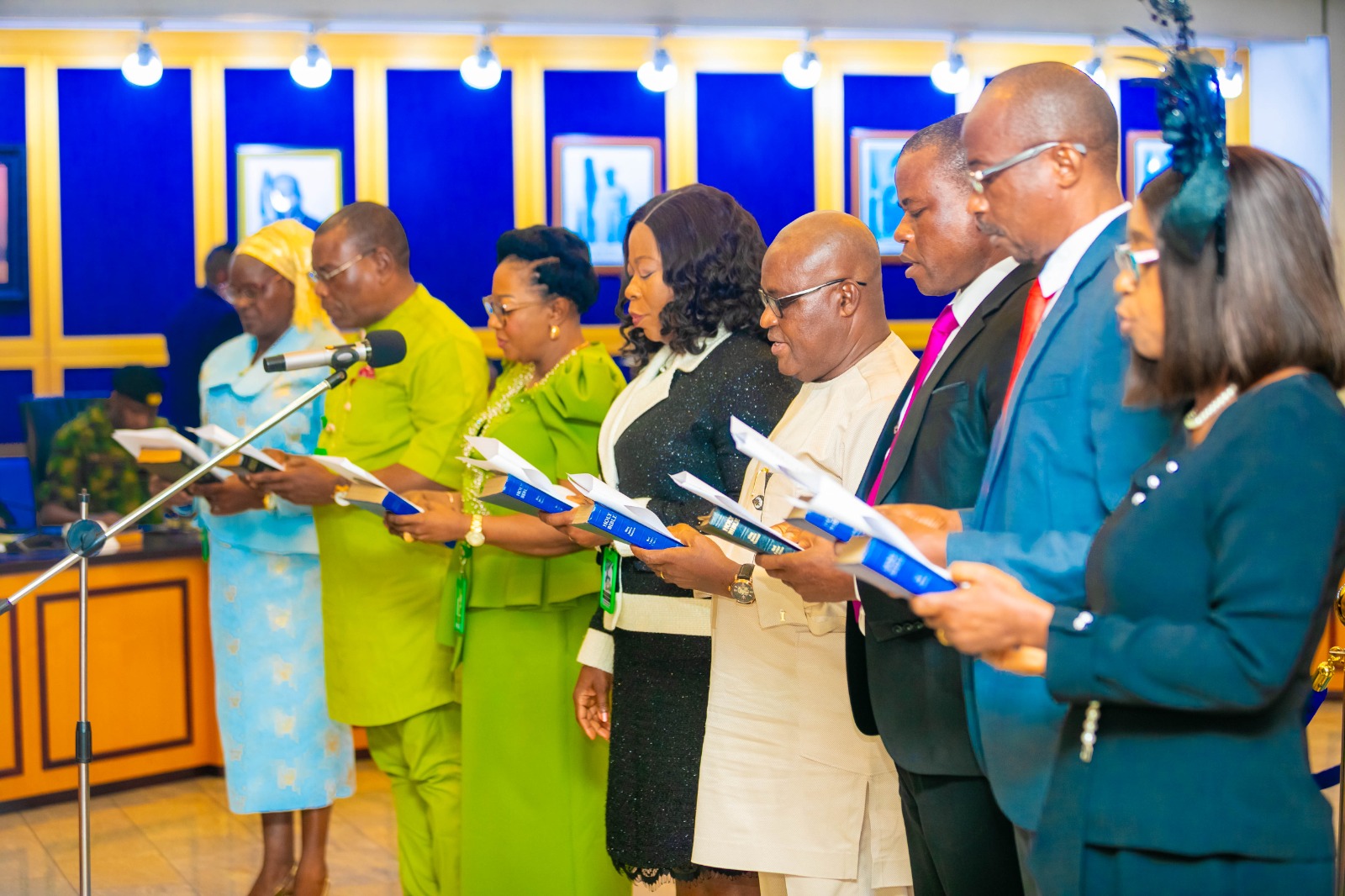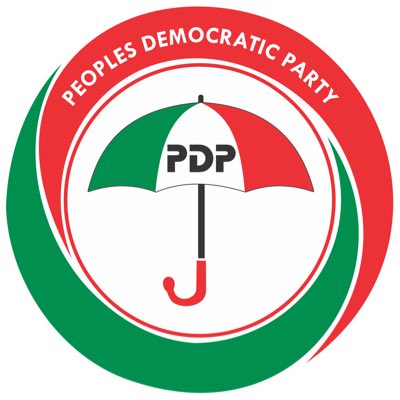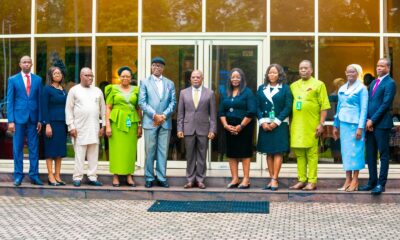News
SERAP Gives Buhari Seven Days To Publish Spending On Security Vote
The Socio-Economic Rights and Accountability Project (SERAP) has sent Freedom of Information requests to President Muhammadu Buhari and the 36 state governors in Nigeria requesting them to use their “good offices and leadership positions to urgently provide information on specific details of spending of appropriated public funds as security votes between 2011 and 2019.”
In the separate requests sent to Buhari and the governors, SERAP said: “Given the current security realities in the country, we need the information to determine if public funds meant to provide security and ensure respect and protection of the rights to life, physical integrity, and liberty of Nigerians have been spent for this purpose. Our request is limited to details of visible, specific security measures and projects executed, and does not include spending on intelligence operations.”
In the FOI requests dated April 12, 2019, and signed by SERAP Deputy Director, Kolawole Oluwadare, the organization said: “’Section 14(2)(b) of the 1999 Nigerian Constitution (as amended) provides that the security and welfare of the people shall be the primary purpose of government.’ It is the security of the citizens that is intended and not the security of select individuals in public office. SERAP believes that transparency and accountability in the spending of security votes are critically important to fully implement this responsibility imposed on both the federal and state governments.”
SERAP said: “We are concerned that rather than serving the citizens, the appropriation of public funds as security votes over the years would seem to serve high-ranking government officials at all levels—federal and states. We are also concerned that the practice of security votes entrusts discretionary powers to spend huge public funds on certain elected public officials who may not have any idea of operational issues on security matters.”
The requests read in part: “SERAP urges you to open-up on the matter and provide information and documents as requested. This will be one step in the right direction. Unless the information is urgently provided, Nigerians would continue to see the appropriation of public funds as security votes and the institutionalization of this cash in ‘Ghana Must Go Bags’ practice as a tool for self-enrichment.
“We would be grateful if the requested information is provided to us within seven days of the receipt and/or publication of this letter. If we have not heard from you by then, the Registered Trustees of SERAP shall take all appropriate legal action under the Freedom of Information Act to compel you to comply with our request.
“The most general purpose of state power is to provide security for citizens and other residents and to enable them lead a life that is meaningful to them. However, the growing level of insecurity, violence, kidnappings and killings in Zamfara State and other parts of Nigeria suggest that successive governments—at both federal and state levels—have been unwilling or unable to satisfactorily implement this fundamental constitutional commitment.
“SERAP believes that there is a strong link between corruption and insecurity, violence, kidnappings and killings in several parts of the country. Available evidence would seem to suggest that many of the tiers of government in Nigeria have used security votes as a conduit for grand corruption rather than spending the funds to improve and enhance national security and ensure full protection of Nigerians’ rights to life, physical integrity, and liberty. In fact, former governor of Kano State, Senator Musa Kwankwaso once described security votes as ‘another way of stealing public funds’.
“The huge financial resources budgeted for ‘security votes’ by successive governments—at both federal and state levels–have not matched the security realities, especially given the level of insecurity, violence, kidnappings and killings in many parts of the country. The current security realities in the country would seem to suggest massive political use, mismanagement or stealing of security votes by many governments.
“SERAP believes that the federal and state governments ought to push for transparency and accountability in the spending of security votes both at the federal and state levels, if any such funds are to be properly spent to promote and ensure sustainable peace and security for the people of Nigeria.
“SERAP believes that by providing the information, your government would help put an end to any insinuation that security votes are spent on political activities, mismanaged or stolen. This would in turn contribute to better opportunities for citizens to assess the level of spending and commitment of successive governments to ensuring the security of lives and property of the people.
“Democratic societies function best with a high level of trust. Corruption, opacity and lack of accountability undermine that trust, and thus undermine the very foundation of democracies.
“We note that the obligation to provide security and protect people’s rights to life, physical integrity, and liberty ought to be a shared responsibility of the federal and state governments, and not just for the Federal Government, as state governors also appropriate huge public funds each year as security votes. Many governors reportedly hide the security votes in their budgets as the funds are not expressly stated in their appropriation acts.
“By Sections 2(3)(d)(V) & (4) of the FOI Act, there is a binding legal duty to ensure that details of spending on specific security measures and projects are widely disseminated and made readily available to members of the public through various means, including on a dedicated website. The information being requested does not come within the purview of the types of information exempted from disclosure by the provisions of the FOI Act.
“As revealed by a 2018 report by Transparency International (TI), most of the funds appropriated as security votes are spent on political activities, mismanaged or simply stolen. It is estimated that security votes add up to over N241.2billion every year. On top of appropriated security votes, governments also receive millions of dollars yearly as international security assistance.
“According to TI, security vote spending exceeds 70 per cent of the annual budget of the Nigeria Police Force, more than the Nigerian Army’s annual budget, and more than the Nigerian Navy and Nigerian Air Force’s annual budget combined.”
SERAP, therefore, urged Buhari and the governors to: “Disclose, including by publishing on a dedicated website, details of spending of public funds appropriated as security votes between 2011 to date, and specific security measures and projects on which such funds have been spent.
“Urgently put in place concrete measures to end the patently unconstitutional, illegal and widespread appropriation of public funds as security votes,” it added.
SERAP further asked for the establishment of, “Joint Security Trust Funds between the Federal Government and the 36 state governments with strong legal framework, oversight and auditing mechanisms, as a permanent replacement for the illegal and unconstitutional appropriation of public funds as security votes.”
News
Ibas Inaugurates RSIEC, Service Commissions, Healthcare Board In Rivers …Charges Appointees To Embrace Principles Of Service

The Administrator of Rivers State, Vice Admiral (Rtd) Ibok-Ete Ibas, has charged newly appointed Board members to uphold the highest standards of discipline, competence, integrity, and unwavering dedication in their service to the State.
He emphasized that such commitment is critical to stabilizing governance, restoring democratic institutions, and advancing the principles of good governance in the State.
This was contained in a statement by the Administrator’s Senior Special Adviser on Media, Hector Igbikiowubo on Monday.
Ibas issued the charge on Monday while inaugurating the reconstituted Rivers State Independent Electoral Commission (RSIEC), Rivers State Civil Service Commission, Rivers State Local Government Service Commission, and the Rivers State Primary Health Care Management Board at Government House, Port Harcourt.
The Administrator urged the new appointees to embrace their roles with diligence, patriotism, and a commitment to transforming Rivers State through excellent service.
Addressing the Chairman and members of RSIEC, Ibas underscored their pivotal role in ensuring credible local government elections that reflect the will of the people.
“Your task is clear but demanding: to conduct free, fair, transparent, and credible elections at the grassroots level. You must resist bias, favoritism, and external interference while restoring public confidence in the electoral process,” he stated.
“The independence of your actions is crucial to sustaining peace, stability, and grassroots governance. I urge you to act with fairness, impartiality, and professionalism—even in the face of difficult choices,” Ibas added.
The Sole Administrator also charged the Rivers State Civil Service Commission on the need to eliminate mediocrity and foster a culture of excellence through merit-based recruitment, training, and promotions.
“The civil service must transition from favoritism to competence, integrity, and accountability. Your commission will lead reforms, including digital transformation and standardized practices across ministries, departments, and agencies,” he said.
He disclosed that extensive training programmes are underway, with a committee set up to overhaul the public service framework for greater efficiency.
Meanwhile, Ibas urged the Rivers State Local Government Service Commission to ensure professionalism and discipline in local government administration.
“As the closest tier of government to the people, you must drive reforms that insulate the system from politics and mediocrity. Your mandate includes merit-based recruitment, training, and enforcing standards for effective service delivery,” he stated.
In the same vein, the Administrator charged the Rivers State Primary Health Care Management Board with revitalizing healthcare delivery across the state’s 23 local government areas.
“Primary healthcare is the foundation of a sustainable health system. Your board must ensure facilities are adequately staffed, equipped, and operational focusing on maternal health, immunization, malaria control, and community health services,” he said.
He emphasized data-driven operations, incentives for rural health workers, and restoring the referral system to improve healthcare access.
He also assured the Board of sustained government support, including funding, for the effective discharge of their mandates but warned that board members would be held accountable for their performance.
The newly inaugurated members include: RSIEC: Dr. Michael Ekpai Odey (Chairman) with Prof. Arthur Nwafor, Prof. Joyce Akaninwor, and others as members.
Civil Service Commission: Dr. Livinus Bariki (Chairman), Amb. Lot Egopija, Mrs. Maeve Bestman, and others.
Local Govt. Service Commission: Mr. Isreal Amadi (Chairman), Rear Adm. Emmanuel Ofik (Rtd), Dr. Tonye Pepple, and others.
Primary Health Care Board: Dr. Dawari George (Chairman), Dr. Chituru Adiele (Executive Director), Prof. Kaladada Korubo, and representatives from key ministries.
News
Rivers PDP Debunks Sale Of LGA Election Forms

The Publicity Secretary of the Peoples Democratic Party (PDP) in Rivers State, Dr. Kenneth Yowika, has debunked claims that the party has commenced sale of forms for chairmanship and councillorship elections across the 23 local government areas of the state.
Yowika made the rebuttal in a statement made available to newsmen on Wednesday, describing the publication on the social media as baseless and untrue.
He urged members of the PDP to disregard the claim, saying that official communication regarding the sale of forms would be disclosed through the appropriate channels.
“With reference to information trending on social media, it has been falsely claimed that the sale of forms for Chairmanship and Councillorship elections in the 23 Local Government Areas (LGAs) of Rivers State will begin soon.
“However, the party has firmly denied these rumours, stating that they are baseless and untrue.
“The party has its own established methods of reaching out to its numerous supporters.
“The People’s Democratic Party, a law-abiding organisation, will patiently await the release of guidelines from the recently inaugurated Rivers State Independent Electoral Commission (RSIEC) before considering any sale of election forms.
“The PDP is urging its members to remain calm as official communication regarding the sale of forms will be disclosed through appropriate channels,” the statement read.
Enoch Epelle
News
South-South contributes N34trn to Nigeria’s economy in 2024 – Institute
Prof. Pius Olanrewaju, President of the Chartered Institute of Bankers of Nigeria (CIBN), has stated that the South-South region contributes N34 trillion to country’s economy in 2024.
He made the remark at the South-South Zonal Banking and Finance Conference in Calabar, yesterday.
He spoke on the theme, ‘’Building An Inclusive South-South: Economic Diversification as a Catalyst For Development.’’
Olanrewaju, who quoted the data from the Cable Data Index, said the feat was more than 21 per cent of Nigeria’s real Gross Domestic Product (GDP).
The president described the growth as ‘’ impressive,’’ saying that it was not driven by oil alone but significant expansions in trade, services, and the creative industries.
According to him, to fully harness this potential, coordinated financial, technological, and policy support is essential.
“As we work to reposition the South-South for broad-based prosperity, the financial system must play a central role, not merely as a source of capital, but as a catalyst for innovation, ideas incubation, and inclusive economic growth.
“This conference, therefore, provides a strategic opportunity for stakeholders to reimagine the South-South economy, not merely as a resource belt, but as a region of diverse capabilities and resilient enterprises.”
Olanrewaju added that Nigeria must move beyond old models and chart a new course for the development of the South-South region, where financial institutions and stakeholder collaborate to diversify the economy for shared prosperity.
He, however, commended Gov. Bassey Otu for his pledge of land for CIBN Secretariat in Cross River and being the first sitting governor to willingly undergo and complete the Chartered Bankers Programme.
On his part, Gov. Otu said that the conference discussion on the economic diversification in South-South region was timely against the backdrop of global trade and economic volatility that was affecting the nation’s economy.
Represented by his deputy, Mr Peter Odey, Otu said the South-South region must now act with urgency to diversify its economy while leveraging its shared natural endowment in agriculture and extractive resources.
“This conference must help develop tailored financial solutions that reflect the unique strengths and realities of states like Cross River in the south-south.
“Diversification should be evidence-based and must be backed not just by financial advice but project focused financing and real investment support,” he noted.
He said that Cross River had taken the bold step to invest in its agricultural sector by launching an Agro processing hub.
Otu further said that the state had invested in aviation by acquiring more aircrafts for Cally Air, construction of the Bakassi Deep Seaport and injecting N18 billion in its tourism sector.
Similarly, Mr Tolefe Jibunoh, Cross River Branch Controller of the Central Bank of Nigeria (CBN) said that the region was blessed with natural resources, cultural diversities and immense human potentials.
Jibunoh, who was represented by Mr Segun Shittu, Head, Currency Control Office, CBN, Calabar, noted that strategic diversification could unlock unprecedented opportunities for growth in the region.
He added that the CBN remained steadfast to maintain monetary possibilities and promote a sound financial system as a catalyst for sustainable economic development for the benefit of all.
-
News22 hours ago
NUP Denies Planned Protest Over N32,000 Pension Increment
-

 Women19 hours ago
Women19 hours agoWhat To Know About Fufu, Loi Loi
-
Rivers22 hours ago
ASALGA Community Debunks Reports On Ownership Of Land Its Settlements
-
Business1 day ago
2027: Group Vows To Prevail On Diri To Dump PDP For APC
-
City Crime20 hours ago
RSG Tasks Federal Government On Maternal Deaths
-
News22 hours ago
South-South Contributes N34trn To Nigeria’s Economy In 2024 – Institute
-

 Featured19 hours ago
Featured19 hours agoRivers A Strategic Hub for Nigeria’s Blue Economy -Ibas …Calls For Innovation-Driven Solutions
-

 Rivers22 hours ago
Rivers22 hours agoNDDC Inaugurates Ultra-Modern Market In Rivers Community

